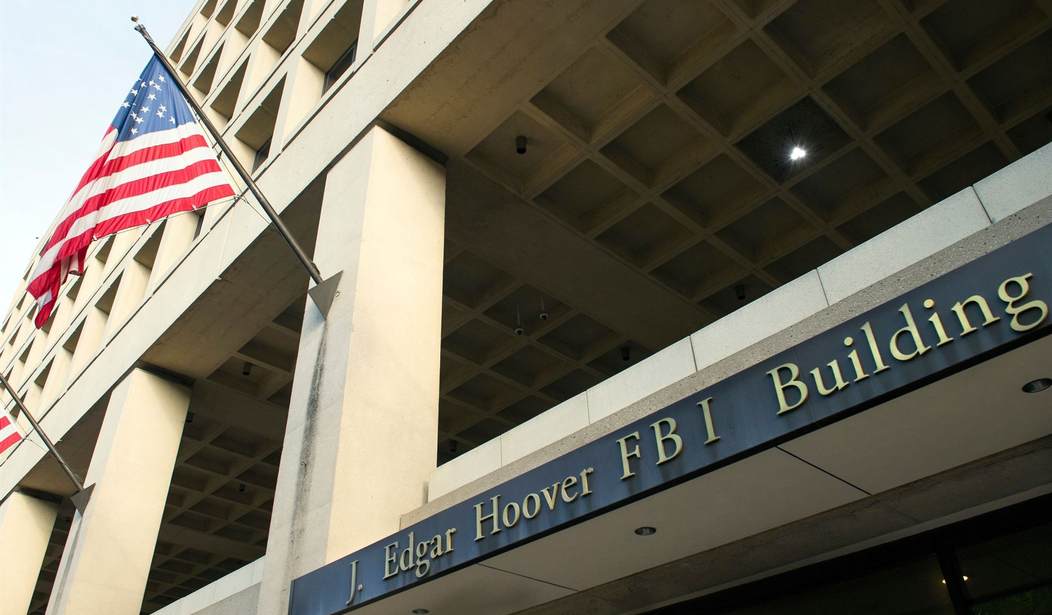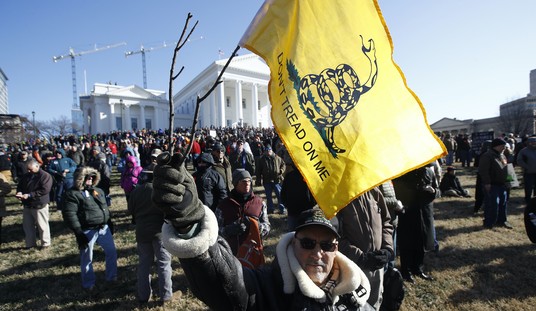While Democrats on Capitol Hill are pushing to establish a voluntary “do-not-sell” list that would let Americans sign up to be denied their ability to legally purchase a firearm (a topic we discussed in depth on today’s Cam & Co), Republicans in Congress are demanding answers from the Federal Bureau of Investigation about a secret program that led to at least two dozen individuals (and potentially many more) waiving their right to keep and bear arms for unknown reasons.
The first evidence of the FBI’s program came in September, when the Daily Caller first reported on the existence of forms used by the agency. Fifteen different forms were revealed in that initial report, but thanks to a Freedom of Information Act lawsuit filed by Gun Owners of America the group was able to obtain forms signed by eight other individuals; raising even more questions about how and why the agency adopted this secretive and possibly illegal scheme.
“Americans can’t simply sign their constitutional rights away, even to the FBI,” Rep. Michael Cloud (R-TX), who signed the October letter, told the Washington Examiner. “As Republicans enter a House majority, we must use our investigative power to put a check on federal agencies who have proven to be eager and willing to crack down on Americans’ right to keep and bear arms.”
Through the forms, the FBI asked signatories to identify as a “danger” to themselves or others or lacking the “mental capacity adequately to contract or manage” their lives. The forms were presented by the FBI to people at their homes and in other undisclosed locations beginning in at least 2016 and until December 2019, when the FBI claims it was discontinued.
While two of the new eight forms have redacted dates for when they were signed, the other six are dated between March 2018 and April 2019.
…
Second Amendment attorneys, as well as GOA, said the existence of the forms, which register signatories into the FBI’s National Instant Criminal Background Check System, leaves unanswered legal questions.
This includes the question of whether the form is legal in the first place — given that it did not move through the process mandated under federal law for government agencies to receive approval from the Office of Management and Budget before obtaining information from the public.
It also remains unclear how the FBI’s usage of the NICS forms aligns with the Gun Control Act of 1968, which outlines how someone may be barred from owning guns if he or she is “adjudicated as a mental defective or has been committed to a mental institution.”
But the act does not say people can rule themselves unfit to own firearms.
“The act is clear, and it says ‘adjudicated,'” John Harris, a lawyer who directs the Tennessee Firearms Association, told the Washington Examiner.
There’s also the issue of just how voluntary these signatures were or the circumstances under which they were collected. So far the FBI hasn’t said much, and Democrats on the House Judiciary Committee rejected a resolution offered by Rep. Andrew Clyde on Wednesday that would have directed the agency to provide details about its secret rules to strip individuals of their Second Amendment rights, while approving the measure that would allow individuals to declare themselves prohibited persons.
The bill demonstrates the glaring problem with the FBI previously obtaining signatures on its forms since lawmakers are essentially recognizing there needs to be congressional approval to engage in what the FBI already did, according to Aidan Johnston, director of federal affairs at GOA.
“The FBI just made something up and began implementing it,” Johnston said. “It has deprived these people of their rights by some made-up unconstitutional process.”
We need a lot more information about how this program was set up and run, how many people were impacted, and when and why it was allegedly shut down in 2019; data that isn’t going to be forthcoming as long as Democrats are in charge of oversight. In just a few weeks, however, Republicans will at least be in control of House committees, and it won’t be nearly as easy for Democrats to set up a smoke screen to hide the bureau’s activities. What we’ve learned is shocking enough, but I suspect there are other troubling revelations to come.







Join the conversation as a VIP Member